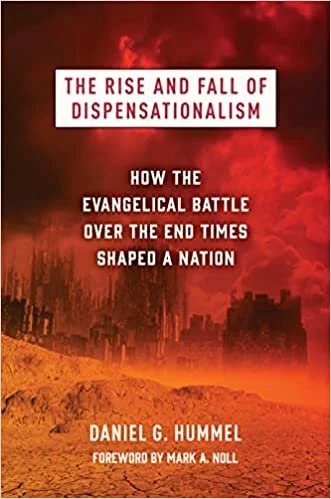Articles about Theology
A few days ago, while scrolling through my Facebook feed, I noticed several of my friends who are either progressive “Christians,” or seem to have left the faith altogether had all shared a very passionate post that has, as of my writing this article, been shared over three and a half thousand times…
Editor Tom Loghry’s outline for an Advent Christian reset.
There it an important upcoming conference hat could help sort our Advent Christian identity….
I am responding to those who asked questions and made pertinent comments about my previous post on ACV’s Facebook page. I do not have a Facebook account and was not able to respond on that platform. ..If faith is genuine and saving then when it is presented with the truth of Christ being the Great I Am, who, as the Word, became flesh, in order to save sinners, such faith will welcome this glorious truth and not oppose it.
Loosening our grip on some of our distinctives would only amount to extinction if we are a movement, not a church. Movements must be steadfast in maintaining their niche points of concern, but churches need not…If the Advent Christian church shifted to positions of neutrality on certain secondary doctrines we would remain the church no matter the degree to which we redefine Advent Christian identity.
I am writing this as an appeal to my fellow Advent Christians who personally hold to the full deity and humanity of Christ in his one person but who do not want to challenge those in our ranks who have no conviction regarding this teaching or who actually oppose it. Before I make the particular appeal let me state some assumptions and offer two points for you to consider.
In “a resurrection in Zarephath” Jefferson Vann suggests a new translation of 1 Kings 17:21-22.
Not all of you know me well...some may wonder about my own history in the denomination and my desires for the Advent Christian church. I thought now would be a good time to share my own story so that you might appreciate the diversity of backgrounds and thought among the “younger” generation. I encourage my peers to do the same.
Devin Nicely responds to a reader’s email….
“Confession: I am an annihilationist. I believe that the wicked will be resurrected on the last day, judged and condemned by God Almighty, and cast into hell to suffer and die. Some of my fellow annihilationists may have just experienced a bit of theological whiplash. You were offering a hearty “Amen” to my belief statement until I threw in the word “suffer.” If that describes you, put on your big boy/big girl pants, because I’ve got something to say that you might not like…”
The subject of special music in church services is one that I’ve given quite a bit of thought…
If I were going to invent a religion I would not invent Christianity. The faith, if it were false, would simply be too fraught with philosophical conundrums to be easily foisted off on any targeted worldly audience…
In most situations, is God’s will for your life really some great mystery? Yes, there are exceptional circumstances in which you are faced with competing values and the resulting confusion, but is it generally so complicated?
In April 2021 our denomination passed a new resolution (#21-08) on Human Dignity, specifically addressing prior resolutions regarding abortion[…]If we are to take this resolution seriously, I believe we also need to apply the same reasoning to the topic of capital punishment.
This time of year I am drawn again and again to the prologue of John’s Gospel. I never get tired reading through it slowly, contemplatively and prayerfully. At times I try to imagine what it must have been like for those early first and second century Christians to have heard it read in their assemblies for the first time or to have had the great gift of setting their eyes on a copy of it. What no doubt would have immediately caught their attention was the phrase “En archē ēn ho logos” (In the beginning was the Word). The Logos would have been somewhat familiar to both Jewish and Gentile believers.
All good things, when left to adults, become busy, and this is especially true of religion. There is a hysteria about religion in America of having to endlessly improve or else…
Tell me, do you have hope? I like to sift out the fools and the Christians from the rest of the populace in short order.
I've begun to view theology much in the same way. Admiration is a term that comes to mind in describing those who've come before me. The church fathers such as Augustine, the Gregorys, Athanasius, Basil, and Didymus are all crucial thinkers of the Christian thought with whom we should be acquainted. These men helped build roads for the Church to understand God more deeply and fully as they compacted the dirt underneath their tires, forming routes with their faithful exposition of God's Word.
I wasn’t planning on publishing a piece for Reformation day, but I read something the other day that really struck a nerve.
Sometimes there are blog articles that really get you thinking. Nathaniel Bickford’s article, “Solutions?” is just that kind of piece. Honestly, I’ve thought along his lines for awhile, but I couldn’t help noticing how it grabbed the attention of so many of you.
William Miller and his followers look like a pack of fools - an example of what not to do. However, I would contend that assessing the merits of the movement is a bit more complex. To be clear, date-setting is absolutely not commendable. No, what I have in mind far more basic and entirely orthodox. The virtue I have observed is this…
Imagine if my wife described me as slender, clean-shaven, neatly dressed, short, and quiet. Then you met me and saw that I towered over most people, sported a Dad-bod, wore crocs, and have a beard that hides my chest. You’d think my wife must be talking about her other husband. That’s quite similar to our disagreements regarding the nature of God. Although we maintain denominational fellowship with those who reject the Trinity, we worship a different God because we disagree as to who God is.
In its most simple terms, theology is the science of knowing God, his creation, and all that is found therein. Practical Theology, then, is the science of applying what one can learn about God, his creation, and all that is found therein.
“So…are you a socialist or a capitalist?”Smiling, I respond to my imaginary inquisitor, “I’m an adventist.”
I believe there is hope because we do have pockets of unity. These strongholds of unity can be found in three areas, which Larkin focuses on and, in my estimation, provides hope for the future.
Let’s stand in thankfulness for the work done by our Christian forbears and early Church Fathers. They’ve handed down priceless heirlooms born out of the careful study and thoughtful discussion in the early hours of our faith’s birth. Rejection of the creeds is to purposefully separate oneself from foundational Christian orthodoxy carried forward from the days before the legalization of Christianity.






























After more than three years of editorial work, Nathaniel Bickford (General Editor), Lou Going (Contributing Editor), and Erik Reynolds (Contributing Editor) are excited to introduce to you a new confession of faith in the tradition of the historic confessions of faith of the Protestant Reformation. The Whitefield Declaration of Faith (WDF), named after the town where two of the editors have pastored, is a reformed, credo-baptist, conditionalist confession in the tradition of the Westminster Confession of Faith, Savoy Declaration of Faith and Order (our starting document), and the London Baptist Confession of Faith.